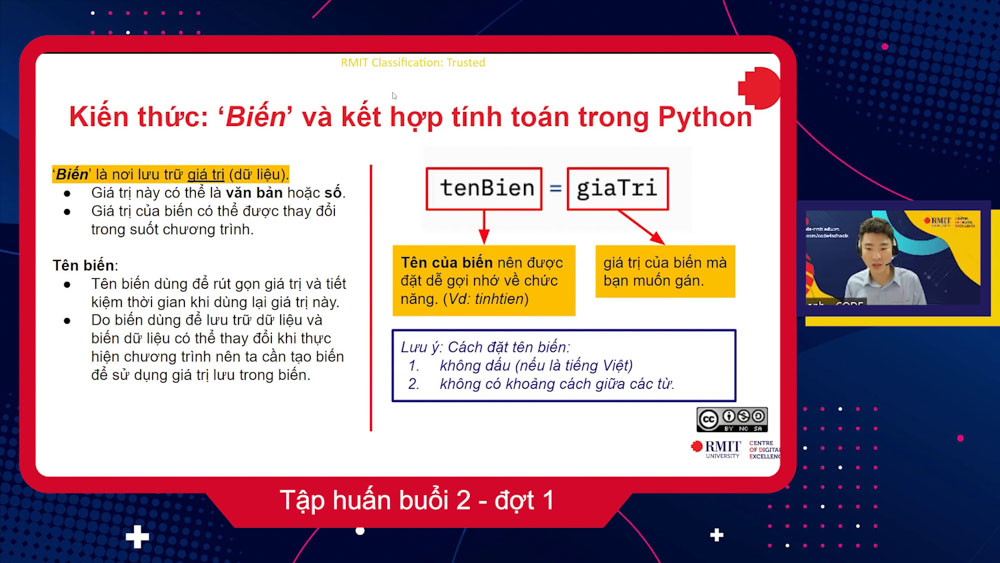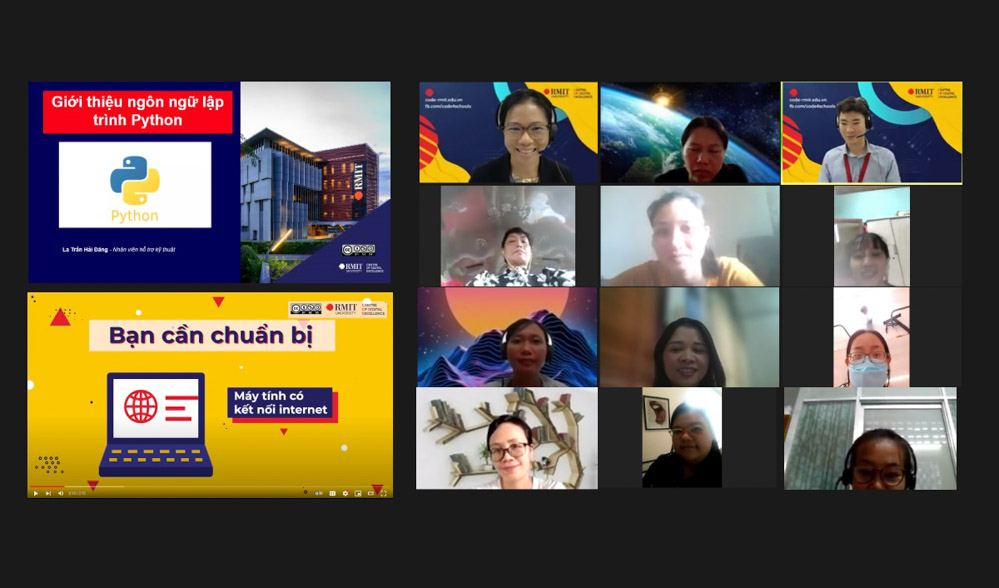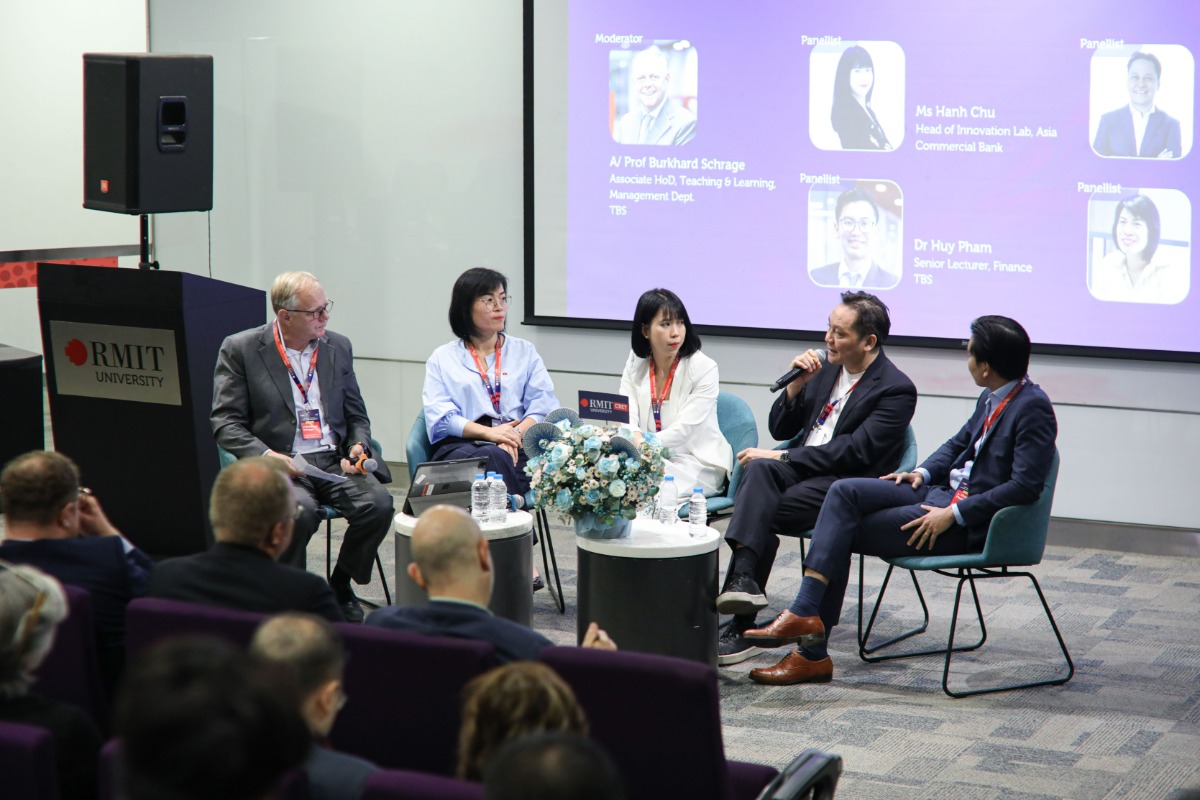Participant from Tran Quang Khai high school in Ho Chi Minh City, Ms Nguyen Thi Huynh Kieu agreed with Mr Minh and said that even though she was already familiar with the Python programming language, through the training she now has a firmer grasp of how to define problems, organise class activities, discuss problem-solving, and present solutions.
“Moreover, CODE also provided a detailed introduction to the online programming environment Replit, including how to login, organise classes, assign tasks, and work in groups. These all helped me to worry less and focus on my future teaching,” Ms Kieu shared.
During a training session, thanks to role-playing as a student when participating in different learning projects, Mr Minh could see more clearly the difficulties teachers and students often face in the teaching and learning process.
“As a result, I gained more experience in organising activities to guide student learning more effectively,” Mr Minh said.
“CODE's program introduced and shared specific learning projects with simulations, helping me gather more teaching ideas, tools and guides to support the learning and teaching process.
“I am particularly impressed with the real robot control programming model through the online lab.”
Head of CODE Associate Professor Jerry Watkins said CODE fully supports MOET’s decision to replace Pascal with Python.
“Python has already become one of the core languages used to create the Industry and Services 4.0 revolution, and familiarity with Python is becoming a desirable skill across many industries in Vietnam and beyond,” he said.
“By integrating Python within the high school curriculum, all students will already have some exposure to this essential programming language.
“This is important, since we have already seen that Python is being used not just by software engineers, but also business analysts and a wide range of technical specialists.”






